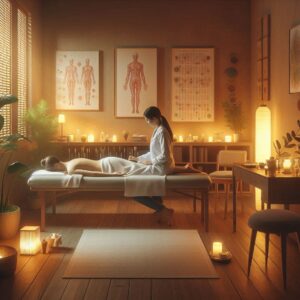Unlock the Power of Acupuncture to Combat Insomnia Effectively
Insomnia is a widespread sleep disorder that can significantly disrupt your life by making it challenging to fall asleep, maintain sleep, or achieve the deep restorative slumber your body craves. This condition can manifest as a temporary issue lasting a few nights to a more chronic problem lasting for months or even years. Numerous factors can trigger insomnia, including stress, worry, underlying depression, irregular sleep schedules, certain medications, excessive caffeine intake, and various medical conditions. By understanding these potential triggers, you can develop effective treatment strategies to restore healthy sleep patterns and improve your overall well-being.
The ongoing struggle with insufficient sleep can have profound implications for both your physical and emotional health. From a health perspective, chronic sleep deprivation can undermine the immune system, heighten the risk of serious issues such as cardiovascular diseases, increase vulnerability to conditions like diabetes, contribute to obesity, and impair cognitive functions. Additionally, the emotional toll can lead to increased anxiety, depression, mood swings, and irritability, significantly affecting mental health. Deficiencies in attention, memory, and decision-making might further exacerbate the challenges posed by chronic insomnia. Identifying and addressing the root causes of insomnia is imperative for mitigating these negative health outcomes and restoring a sense of well-being.
Essential Insights on Insomnia and Its Far-Reaching Effects
- Insomnia presents itself as a complex sleep disorder marked by difficulties in falling asleep, staying asleep, or waking up prematurely.
- This condition can stem from a variety of issues, including stress, anxiety, depression, poor sleep habits, and specific medications.
- Long-term deprivation of sleep can severely compromise your health, leading to a weakened immune system, heightened risk of chronic illnesses, decreased cognitive abilities, and mood fluctuations.
- Acupuncture enhances sleep quality by stimulating specific acupoints that help harmonize the body’s energy flow and promote relaxation.
- Research substantiates that acupuncture can significantly improve sleep quality and alleviate various symptoms associated with insomnia.
- This ancient practice addresses insomnia by reducing anxiety, promoting relaxation, and restoring equilibrium to the body’s energy balance.
- Studies suggest that acupuncture may increase melatonin production, help regulate the circadian rhythm, and enhance overall sleep quality.
- Notable acupoints commonly used in insomnia treatment include Shenmen, Sishencong, Anmian, and Yin Tang.
- Experienced practitioners utilize fine needles to stimulate specific points, promoting tranquility, alleviating stress, and enhancing sleep quality.
- Acupoints such as Shenmen are recognized for their calming effects, while Anmian is effective in soothing the mind and enhancing sleep.
- Traditional Chinese medicine underscores the significance of maintaining balanced energy flow and harmony between yin and yang to achieve quality sleep.
- Incorporating herbal remedies like chamomile, valerian root, and lavender alongside dietary suggestions such as warm, easily digestible foods can significantly boost sleep quality.
- Integrating traditional Chinese medicine techniques, including acupressure, herbal remedies, and Qi gong, can complement acupuncture in treating insomnia.
- During an acupuncture session for insomnia, practitioners perform a thorough consultation to assess your sleep habits, lifestyle, and overall health.
- The insertion of thin needles into targeted acupoints is aimed at fostering relaxation, alleviating stress, and improving overall sleep quality.
- Multiple sessions over several weeks or months may be necessary to achieve optimal results in managing insomnia effectively.
- Creating a sleep-friendly environment involves minimizing noise and light disturbances, maintaining a comfortable room temperature, and incorporating relaxation techniques like meditation or deep breathing.
- Establishing a consistent sleep schedule, avoiding caffeine and screen time before bed, and engaging in regular physical activity can dramatically enhance sleep quality.
- Practicing stress management methods such as yoga, meditation, or tai chi can further improve your insomnia treatment outcomes.
- Collaborating with healthcare professionals, including psychologists, nutritionists, or sleep specialists, can effectively integrate acupuncture with other insomnia management strategies.
- Complementary therapies like yoga, meditation, or massage can foster relaxation, alleviate stress, and improve sleep quality.
- Addressing underlying health issues such as anxiety, depression, or chronic pain is essential for comprehensive insomnia relief.
 Understanding How Acupuncture Enhances Sleep Quality
Understanding How Acupuncture Enhances Sleep Quality
Acupuncture has long been celebrated as a vital element of traditional Chinese medicine (TCM), revered for its calming effects and ability to promote restful sleep. This holistic methodology focuses on regulating the body’s energy flow, or qi, by stimulating targeted acupoints. By positively influencing the nervous system, diminishing stress and anxiety levels, and correcting internal imbalances that contribute to insomnia, acupuncture can significantly elevate sleep quality. This ancient approach not only helps reduce the frequency of nighttime awakenings but also cultivates an overall sense of relaxation and well-being, maximizing the restorative benefits of sleep.
Comprehensive scientific research and clinical investigations have consistently demonstrated the favorable effects of acupuncture on sleep quality. A significant study published in The Journal of Alternative and Complementary Medicine revealed that patients suffering from insomnia experienced considerable improvements in their sleep quality after undergoing acupuncture treatment. Additionally, research featured in the Journal of Sleep Research confirmed that acupuncture effectively mitigated the severity of insomnia while enhancing overall sleep quality. These compelling results underscore acupuncture's potential as a safe and natural therapeutic option for individuals struggling with sleep disturbances.
Identifying Targeted Acupuncture Points for Enhancing Sleep
Skilled acupuncturists strategically utilize specific acupoints to effectively address insomnia and elevate sleep quality. These targeted acupuncture points are crucial in tackling sleep-related challenges. For example, the Shenmen point, located on the wrist, is renowned for its ability to promote calmness and relaxation in both mind and body. Another essential point, Sanyinjiao, located on the lower thigh, is believed to nourish blood and yin, leading to diminished anxiety and enhanced relaxation. The Anmian point, situated behind the ear, is frequently employed to combat insomnia and foster a peaceful night’s rest. The Yintang point, located between the eyebrows, is celebrated for its soothing effects on mental clarity.
During acupuncture sessions, practitioners carefully insert small needles into the skin at precise depths to stimulate these specific points effectively. This stimulation is thought to help regulate the body's energy flow, promoting a sense of balance and harmony. Consequently, many individuals report a reduction in insomnia symptoms and a noticeable improvement in sleep quality following treatment.
Delving into the Holistic Principles of Traditional Chinese Medicine for Sleep
Traditional Chinese medicine (TCM) embraces a holistic perspective on health and wellness, recognizing the intricate connections within the body’s systems and the significance of balance for optimal health. TCM principles related to sleep emphasize restoring internal harmony to facilitate restful slumber. Herbal remedies are frequently prescribed to address imbalances that lead to sleep disturbances. Herbs such as valerian root, chamomile, lavender, and passionflower are celebrated for their soothing properties, assisting in achieving more restorative sleep. These natural solutions are believed to promote physical relaxation and improve overall sleep quality.
In their practice, TCM practitioners often provide dietary recommendations aimed at enhancing sleep quality. Individuals experiencing insomnia are frequently advised to consume foods that nourish the blood and yin. Such dietary choices may include dark leafy greens, nuts, seeds, and seafood. Furthermore, practices like Qigong, tai chi, and acupressure, along with other TCM therapies, can effectively alleviate insomnia by promoting relaxation, reducing stress, and enhancing overall well-being, ultimately contributing to better sleep quality.
 What to Anticipate During Your First Acupuncture Session for Insomnia
What to Anticipate During Your First Acupuncture Session for Insomnia
When you arrive for your initial acupuncture session specifically targeting insomnia, the acupuncturist will conduct a thorough assessment of your sleep patterns, overall health, and any underlying factors that may be contributing to your sleeplessness. Drawing upon their expertise, the acupuncturist will design a personalized treatment plan that addresses your unique needs and circumstances.
The acupuncture treatment process involves the gentle insertion of fine needles into designated points on your body. Patients are typically encouraged to relax for 20 to 30 minutes while the needles remain in position. During this time, individuals may perceive a gentle tingling sensation or mild discomfort; however, the overall experience is often described as calming and tranquil, fostering a conducive environment for sleep.
The timing and frequency of acupuncture sessions may vary based on the severity of insomnia and individual responses to the treatment. While some patients notice improvements in their sleep quality after just a few sessions, others may require ongoing treatment to achieve more lasting effects.
Implementing Lifestyle Changes to Maximize Acupuncture Benefits for Insomnia
In conjunction with acupuncture, adopting specific lifestyle modifications can significantly bolster your sleep quality. Establishing a sleep-conducive environment is paramount for enhancing your overall sleep experience. Optimizing your sleeping space includes ensuring that your bedroom is dark, quiet, and calm, utilizing comfortable bedding and pillows, and creating a calming bedtime routine that signals to your body that it's time to wind down for the night.
Incorporating healthy habits can greatly improve the quality of your sleep. This includes adhering to a consistent sleep schedule, avoiding caffeine and electronic devices in the hours leading up to bedtime, integrating regular physical activity into your daily routine, and practicing relaxation techniques like deep breathing or meditation to quiet the mind.
Effective stress management methods can significantly enhance the outcomes of acupuncture treatment for insomnia. Engaging in activities such as yoga, meditation, or massage therapy can help alleviate anxiety and promote relaxation. These practices provide essential support to help you unwind, making it easier to both fall asleep and maintain sleep throughout the night.
 Holistic Integration of Acupuncture with Other Effective Strategies for Insomnia Relief
Holistic Integration of Acupuncture with Other Effective Strategies for Insomnia Relief
Under the guidance of a skilled practitioner, acupuncture can become a valuable part of a comprehensive approach to managing insomnia, providing much-needed relief for those struggling with sleep disorders. Collaborating with other healthcare professionals, such as primary care physicians or mental health specialists, is crucial for delivering holistic care to individuals facing insomnia.
By combining acupuncture with complementary practices like yoga, meditation, and massage therapy, individuals can create a well-rounded strategy to promote relaxation and reduce stress, leading to enhanced sleep quality. These methods can seamlessly integrate into a personalized treatment plan designed to meet each individual's unique needs, ensuring they feel heard and valued.
Moreover, it is crucial to address any underlying health issues that may exacerbate insomnia. Tackling chronic pain, anxiety, depression, or other medical conditions that impair sleep quality can be an integral part of the overall treatment process. Those who adopt a holistic perspective on their health and well-being can significantly enhance both their sleep quality and overall quality of life.
Ultimately, insomnia can profoundly influence both physical and emotional well-being, highlighting the necessity of exploring effective treatment options. A knowledgeable practitioner can leverage acupuncture to improve sleep quality by addressing imbalances within the body and fostering a sense of tranquility. By integrating lifestyle modifications, principles of traditional Chinese medicine, and other complementary therapies, acupuncture can significantly enhance both sleep quality and overall well-being. This holistic approach offers hope and optimism for individuals seeking relief from insomnia.
 Common Questions About Acupuncture and Insomnia
Common Questions About Acupuncture and Insomnia
What is Acupuncture and What Benefits Can It Provide?
Acupuncture is a time-honored practice within traditional Chinese medicine, where skilled practitioners insert thin needles into specific points on the body. This technique promotes the flow of energy and bolsters the body’s natural healing processes, aiding in the relief of various health issues, including insomnia.
How is Insomnia Defined?
Insomnia is a sleep disorder that impairs the ability to fall asleep, stay asleep, or achieve restorative sleep. This persistent condition often leads to daytime fatigue and reduced functionality, making it essential to pursue effective treatment options.
How Does Acupuncture Help in Alleviating Insomnia?
Acupuncture has been shown to positively influence insomnia by restoring balance to the body’s nervous system, alleviating stress and anxiety, and inducing a state of relaxation. This approach ultimately enhances both the quality and duration of sleep, establishing acupuncture as an effective treatment option.
Are There Scientific Studies Supporting Acupuncture's Efficacy for Insomnia Relief?
A range of studies indicates that acupuncture can improve sleep quality and alleviate insomnia symptoms. While evidence supports its benefits, further investigation is necessary to solidify these findings and arrive at more definitive conclusions.
What Can I Expect During an Acupuncture Session Targeted at Insomnia?
During an acupuncture session, a skilled practitioner carefully inserts slender needles into specific points on your body associated with promoting sleep and relaxation. The needles are typically left in position for 15-30 minutes while you unwind and embrace tranquility.
Are There Any Possible Side Effects Linked to Acupuncture for Insomnia?
When performed by a trained and experienced practitioner, acupuncture is generally safe. However, some individuals may experience minor side effects such as tenderness, discoloration, or slight bleeding at the needle insertion sites.
Can Acupuncture Function as a Standalone Treatment for Insomnia?
Acupuncture can be an effective treatment for insomnia when combined with complementary strategies such as lifestyle changes, relaxation techniques, and cognitive behavioral therapy for insomnia (CBT-I), creating a comprehensive treatment plan.
How Many Acupuncture Sessions Are Typically Required to Notice Improvements in Insomnia?
The number of acupuncture sessions necessary to observe improvements in insomnia varies based on individual circumstances and the severity of symptoms. Many individuals report enhancements after just a few sessions, while others may require ongoing treatment for sustained benefits.
Brought To You By:
References
If You Only Get 3 Hours of Sleep One Night – What Happens – Themes Quality. https://www.themesquality.com/what-happens-if-you-only-get-3-hours-of-sleep-for-one-night/
Sleep Better with 30 Essential Oils: A Natural Remedy for Insomnia and Restless Nights – Hotnewamapiano. https://hotnewamapiano.com/2023/02/11/sleep-better-with-30-essential-oils-a-natural-remedy-for-insomnia-and-restless-nights/
Migraines Helped by Acupuncture. https://www.ncbi.nlm.nih.gov/pmc/articles/PMC3291665/
The Article: Acupuncture Techniques for Improving Sleep Quality appeared first on Acupuncture Blackpool.
The Article Acupuncture Techniques for Better Sleep Quality appeared first on https://mcrtherapies.com
The Article Acupuncture Techniques to Improve Sleep Quality Was Found On https://limitsofstrategy.com


I really appreciate the focus on acupuncture as a remedy for insomnia in your post. It’s such a multifaceted issue that often gets overlooked, and I think many of us can relate to the ways sleep deprivation can impact not just our nights but also our days. I remember my own struggles with insomnia during a particularly stressful period at work. The pressure and constant anxiety made it nearly impossible to wind down at night, and I noticed it was affecting my mood and productivity drastically.
It’s interesting to hear how your experience with insomnia tied directly to work stress and anxiety. Sleep troubles can be so intricately woven into our daily lives, impacting everything from our mood to how we engage with others. Acupuncture, in particular, can help address that stress response, promoting relaxation and potentially making it easier to transition into sleep.
You really hit on an important point about the relationship between sleep deprivation and its ripple effects on our daily lives. Your experience with insomnia during a particularly stressful time resonates with many people. The connection between anxiety, pressure, and the inability to unwind at night is something that’s often brushed aside.
I’m glad to hear that my post resonated with you! If you’re interested in exploring acupuncture further as a natural solution for insomnia, I’ve included a helpful resource that delves deeper into its benefits and techniques.
https://wealth-4-ever.com/quillbot
I appreciate you sharing your thoughts! The whole relationship between sleep and stress can feel like a vicious cycle, can’t it? When we’re swamped with anxiety, it’s like our minds refuse to shift into that quiet mode we need for a good night’s sleep. I think a lot of people experience this but just brush it off, thinking they’ll manage somehow.
I appreciate your exploration of how acupuncture can address insomnia; it’s a perspective that deserves more attention. Personally, I’ve found that understanding my sleep triggers—like stress and caffeine intake—has been just as crucial as seeking treatments. It often feels like a multi-faceted journey. I came across a study recently that highlighted how mindfulness practices can complement acupuncture, creating a holistic approach to better sleep.
It’s interesting to hear about your journey with sleep and how understanding your triggers has played such a key role. Stress and caffeine are definitely common culprits for many. I’ve noticed that the environment I’m in at night can also make a huge difference—things like room temperature or even the type of light I’m exposed to.
I recently read an article that dives into various acupuncture techniques aimed at improving sleep quality, and it really resonated with my own experiences of balancing treatments with mindfulness and understanding my sleep triggers.
‘Acupuncture Techniques to Improve Sleep Quality’
https://wealth-4-ever.com/acupuncture-techniques-to-improve-sleep-quality-2/.
It’s great to hear your thoughts on the environment’s role in sleep quality. I’ve found that aspects like room temperature and light can really influence how restful our sleep is. Personally, I’ve experimented with blackout curtains and keeping the thermostat a bit cooler, which has helped me feel more relaxed at night.
It’s interesting to hear about your experiences with room temperature and light. I’ve noticed that a cooler environment can really make a difference for me too. It seems like sleep quality is often overlooked in discussions about overall health and wellness.
You bring up a really good point about sleep quality. It often feels like the unsung hero in the health and wellness conversation, doesn’t it? I used to not pay much attention to how my sleeping environment affected me. It’s one of those things that can easily slip under the radar until you really think about it or, more importantly, until you notice the difference.
I’m glad you found that relatable! Sleep quality is so crucial to our overall wellness, and I recently came across some tips that really helped me. You might find them useful too—check them out here!
https://wealth-4-ever.com/octopus
You really captured the essence of how easy it is to overlook sleep quality in our busy lives. It’s interesting how much our environment can shape our sleep patterns—it’s something I definitely started paying more attention to after realizing how much my own mood and focus could shift based on how well I slept.
You’re right; sleep quality is often overlooked in the broader health and wellness discussions. It’s fascinating how much our environment can shape our rest—things like light, noise, and even the temperature of our room can make a significant difference. I used to underestimate it too, until I started incorporating some simple changes, like using blackout curtains and keeping my phone out of the bedroom.
You’re right; sleep quality really is the unsung hero in our health routines. It’s interesting how we often prioritize things like diet and exercise while overlooking the critical role that a good night’s sleep plays. I went through a phase where I didn’t think much about my sleeping environment either. Then I realized how much a few small changes—like adjusting the temperature or even replacing an old mattress—made a significant difference in my rest.
You’ve touched on something that many of us overlook until it becomes a problem. It’s interesting how we focus so much on what we eat and how often we hit the gym, but when it comes to sleep, we often just cross our fingers and hope for the best. The difference a good night’s sleep can make isn’t always obvious at first — it’s easy to push through tiredness without realizing how it affects everything else in our lives.
You’re spot on about how sleep often gets sidelined in the health conversation. We’re quick to jump on the latest diet trends or hit the gym, but we tend to gloss over how crucial sleep is to our overall well-being. Your experience resonates with a lot of people.
It’s great to connect over the importance of sleep quality—it’s truly a game changer, isn’t it? I’ve found that creating a comfortable environment, like keeping the room cooler or adjusting the lighting, can really reset my mind and body. It’s fascinating how something as simple as temperature can impact our entire day.
“I’m glad to hear you resonate with that! If you’re interested in exploring how to optimize your sleep environment, check out this resource that dives deeper into the impact of temperature and light on sleep quality.”
https://wealth-4-ever.com/quillbot
It’s so true that the environment plays a crucial role in our sleep quality. I’ve found that even small changes, like using blackout curtains or adjusting the thermostat by just a few degrees, can significantly impact how restful my sleep is. It’s fascinating how our senses respond to the environment, like how the color of the light can influence our circadian rhythms.
It’s exciting to hear how you’ve been experimenting with your sleep environment. You really hit the nail on the head about the little changes making a big difference. Blackout curtains can be game changers when it comes to creating a sleep sanctuary—blocking out light not only helps with falling asleep but can also lead to deeper, more restorative sleep cycles.
“I’m glad you found that helpful! If you’re interested in exploring more tips on creating a sleep-friendly environment, check out this guide.”
https://wealth-4-ever.com/quillbot